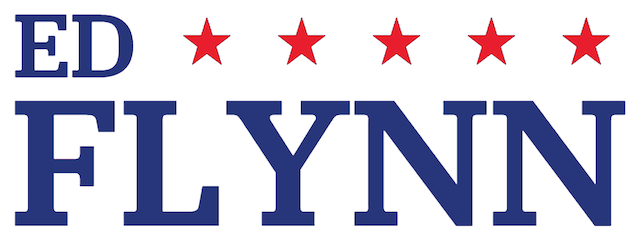There are the traditional spots for South Boston’s legendary pols to campaign: Castle Island, Mul’s Diner, and the St. Patrick’s Day breakfast at the Iron Workers Hall.
The latest stomping ground for District 2 hopefuls? This weekend’s Boston Pride parade.
As five-term Councilor Bill Linehan steps down, his district — which includes South Boston, the South End, and Chinatown — is undergoing swift demographic change. Look no further than the field running to succeed Linehan, or this weekend’s parade, for evidence of an area in flux.
In the district that was dominated by old-guard politics for decades, there are three top candidates seeking Linehan’s seat: Ed Flynn, the son of former mayor Raymond Flynn; Michael Kelley, an aide to the late mayor Thomas M. Menino; and Corey Dinopoulos, an artist and community organizer who cofounded the privately backed Olympics bid Boston 2024.
Flynn hails from South Boston. Dinopoulos lives there as well, and Kelley is from Bay Village. Dinopoulos and Kelly are gay, and all three signed on to march in the Boston Pride parade, which passes through the district via Bay Village and the South End on its route.
The widespread participation in the parade represents “a significant change from a decade ago,” said Lawrence DiCara, a partner at Nixon Peabody and a former city council president. “The fact is, there are votes in the gay community in this city, there are lots of votes, and everybody knows this. It’s a big change.”
In a Friday interview, Flynn said he was looking forward to marching with his wife and two children and campaign staff. “It’s about bringing people together, and that’s what Boston is all about,” he said. “South Boston has certainly changed. But we’re a welcoming community to everyone, and I know that’s the case in neighborhoods across the city.”
Both Dinopoulos and Kelley said they never envisioned the parade would attract such political attention in the district.
“There’s been such a dramatic shift, not only in the new people living in the district, but also the openness and idea of inclusion all across the district,” Kelley said. “I’m being welcomed in every single neighborhood in this district.”
Dinopoulos added, “This district has come a long way to see two openly gay candidates running for office, and I’m excited.”
With the revitalization of Fort Point and development in Chinatown, among other projects, District 2 has experienced some of the fastest change in the city: Over the past decade, 50 percent of development has occurred in the district, Linehan has said.
The development has changed the identities of core neighborhoods such as South Boston, as young professionals have moved into new buildings and prompted a greater night life scene in the area.
From 2011 to 2015, 20- to 34-year-olds made up 44 percent of South Boston residents, compared to 39 percent in the four years prior, according to the Boston Planning & Development Agency. The median household income grew to more than $77,000 from 2011 to 2015 — a jump of more than $10,000 compared to the previous four years, agency data showed.
From 2000 to 2010, the number of South Boston residents with a bachelor’s degree or higher increased from 28 to 54 percent.
Michael J. Donovan, the clerk of civil affairs in Suffolk Superior Court and a longtime politics watcher from South Boston, said that the change of the neighborhood, with the loss of traditional voters and the arrival of new residents, has eroded the political clout that a popular candidate from South Boston might have once held over the entire district.
“Assuming all candidates were worthy, one from South Boston would have been the leading candidate, but now it’s something different because you don’t have that same foundation,” said Donovan, who has endorsed Flynn.
He added, however, that the families who have lived in South Boston are still likely to vote, and he questioned whether the newer residents will actually head to the polls.
DiCara, who ran for mayor against Flynn’s father in 1983, raised the same question: “Who shows up to vote?”
“It’s dramatic changes, and just a very different city,” he said.
Linda DeMarco, vice president of Boston Pride, said the annual parade has grown as a go-to place for local pols, rivaling the attractions of Boston’s more traditional Bunker Hill Day Parade and the Dorchester Day Parade. Politicians, she said, are no longer standing on the sidewalks handing out fliers to spectators at the Pride parade, but are marching in the procession with their election committees.
In recent years, Linehan has marched with a group of city employees.
DeMarco could not comment on the candidates because, she says, her organization remains neutral in elections. But she said that Linehan’s departure opens the race up to the entire district, not just South Boston. Since the early 1980s, when the council moved to geographically based districts, the district has always been held by a man from South Boston — by Linehan, and prior to that, James Kelly.
So far, Flynn and Kelley have built up credible war chests. Flynn had $81,574 in campaign cash as of May 31, according to state Office of Campaign and Political Finance records. Kelley had $58,077. Dinopoulos had $12,150.
The Boston Board of Election Commissioners has also certified Joseph F. Kebartas, Peter Lin-Marcus, Erica J. Tritta, and Kora Roberts Katz Vakil for the preliminary ballot on Sept. 26, though they have raised minimal funds. The top two vote recipients will compete in the general election Nov. 7.
“Councilor Linehan has had this seat for a very long time, and having him retire brings a breath of newness to that district, and now that district has a choice,” DeMarco said. “[Voters] can see the whole spectrum, the old Boston and the new Boston.”
